Gillings Humanitarian Health Initiative
Message from the HHI Leads
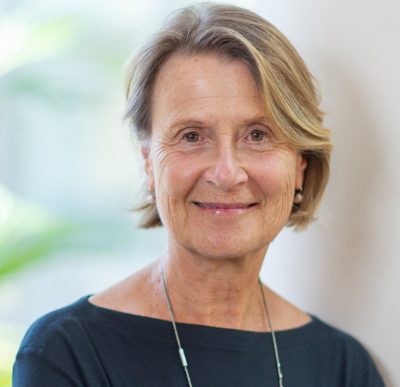
Sheila Leatherman, CBE, Hon FRCP
Professor of Global Health, Department of Health and Management, and Gillings Global Advisor
Currently, two billion people live in countries where development outcomes are affected by fragility, conflict, and violence (FCV). By 2030, nearly 50% of the global poor will live in such situations. These circumstances call for attention and action worldwide. Earlier this year, the UN Office for Coordination of Humanitarian Affairs (OCHA) projected that 274 million people would need humanitarian assistance and protection, an increase from 235 million projected for 2021. Hunger is on the rise, disease outbreaks are increasing, and the impact of the COVID pandemic on essential health services could erase decades of progress in HIV, TB, and malaria, potentially doubling death tolls.
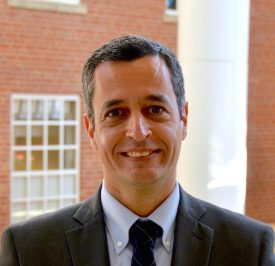
Dilshad Jaff, MD, MPH and Adjunct Associate Professor in the Department of Maternal and Child Health
COVID-19 has triggered the deepest global recession since the 1930s with extreme poverty rising for the first time in 22 years. The UNHCR, the UN Refugee Agency, has reported that over 89 million people – or 1 in every 88 on the planet – have been forcibly displaced, the vast majority of whom are residing in the Global South.
Crises related to war, internal conflict, fragile governments unable to provide essential services, climate and water related emergencies are all an ever-present challenge, often addressed by acute crisis responses to immediate humanitarian needs for shelter, protection, medical care, and more. Humanitarian aid has been traditionally defined as “material and logistic assistance to people who need the help. It is usually short-term help until the long-term help by government and other institutions replaces it. Among the people in need are the homeless, refugees, and victims of natural disasters, wars and famine.” [Source]
However, in reality, these complex crises are often protracted and require long term solutions. A pressing question is how do we move to proactive management and mitigation of the impact of crises and more predictably build resiliency in partnership with affected populations? As global health professionals, we seek to contribute to that looming question in the pursuit of advancing health care, health outcomes and well-being for people across the world.
–Sheila Leatherman, CBE, Hon FRCP, Professor of Global Health in Health Policy and Management and Dilshad Jaff, MD, MPH, Professor in the Department of Maternal and Child Health
Our Mission
We in the Gillings Humanitarian Health Initiative, in collaboration with and support of partnering organizations and collaborators, work to address multiple and diverse humanitarian situations in ways that include;
- Evidence scanning for what works to improve health care and health outcomes in FCV and humanitarian settings
- Action research for rapid uptake of practices and interventions that can be adopted and adapted in the front lines of providing health care
- Capacity strengthening for NGOS and governments
- Strategic advising
- Monitoring and evaluation
For any general questions about HHI, please contact Amy Kryston at amykryston@gmail.com.
The Gillings Humanitarian Health Initiative offers Gillings graduate student opportunities to engage in service projects of a year (or longer) duration, with a supporting honorarium award. Each intern works on one or more service projects focused on supporting international and national NGOs or multilateral health organizations in a specified body of work meeting the evaluation, policy, practice, and service needs specified by collaborating NGOs.
The Gillings Humanitarian Health Initiative operates through collaborating with both internal and external partners. If your agency or organization is interested in partnering with the Humanitarian Health Initiative, please use the link below to submit an application. Applications accepted on a rolling basis.
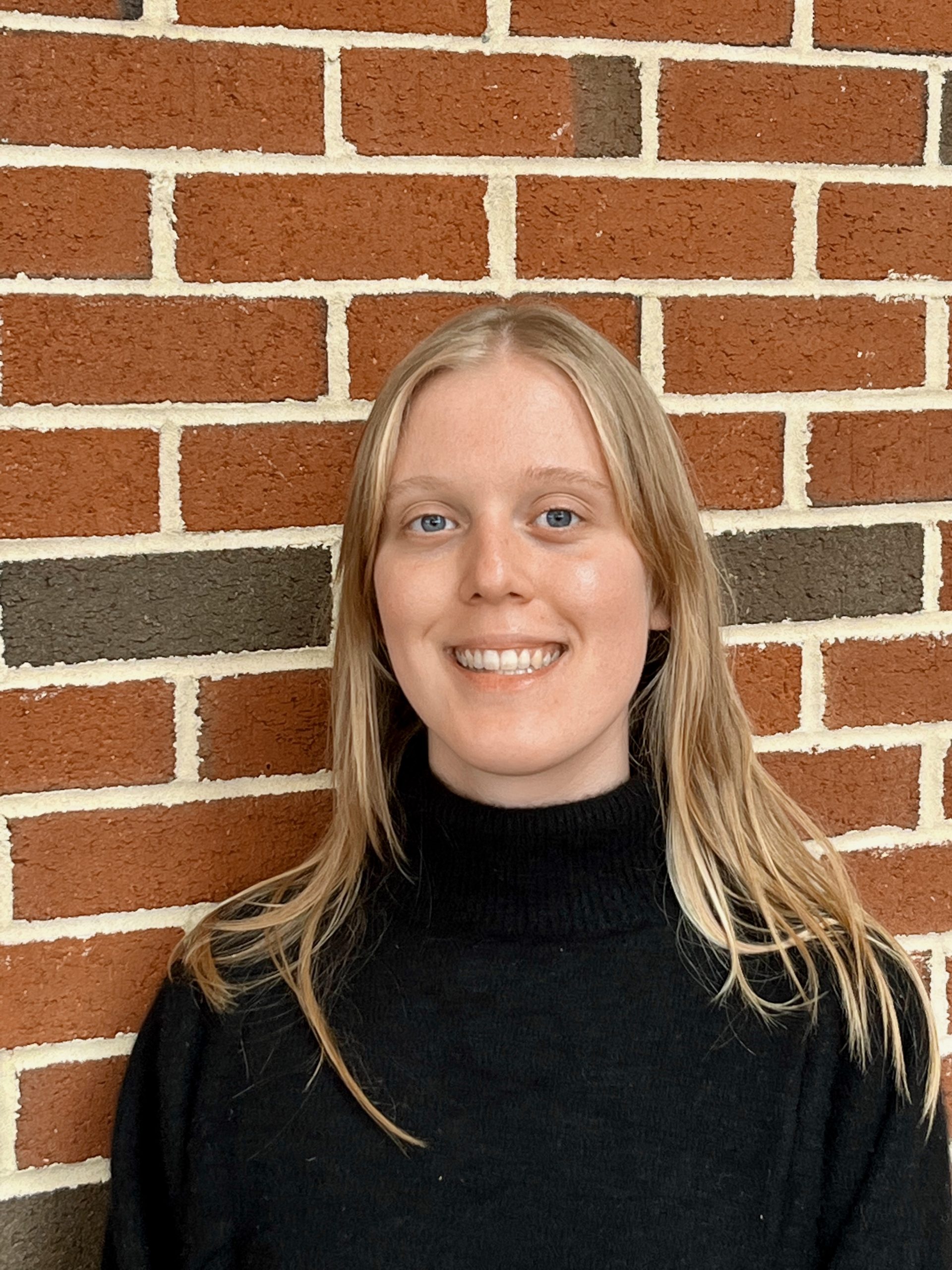 Degree program: MPH, maternal, child, and family health concentration
Degree program: MPH, maternal, child, and family health concentration
Lauren is an MPH candidate with a concentration in maternal, child, and family health, with an interest in health systems strengthening, particularly in conflict and humanitarian settings. Prior to UNC, she completed a year of AmeriCorps service as a preventative health specialist at a federally qualified community health center. She also is an intern at Bright Minds Africa, a Nigeria- and Cameroon-based education and health NGO, where she remotely provides bi-weekly staff trainings and assists with monitoring and evaluation of health programs and interventions. As a Gillings HHI intern, she is working with AMOS Health and Hope, a Nicaragua-based primary healthcare NGO to provide analytic support, continuous education and training for staff, and research of best practices.
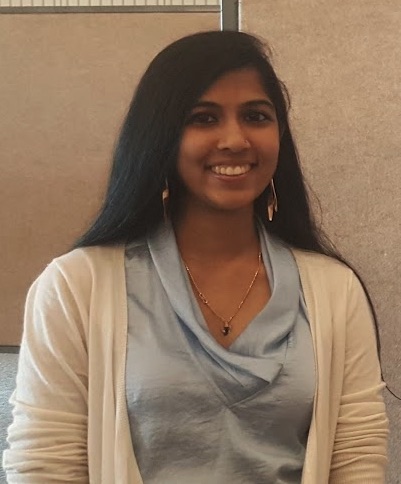
Degree program: PhD in Maternal and Child Health (epidemiology minor)
Aparna Kachoria is a doctoral student in the MCH department. Before joining UNC, she received her MPH in global health epidemiology from the University of Michigan and spent five years working in quality improvement, health services research, and overseeing mental health research studies in Central Massachusetts. Her current research interests include maternal empowerment and perinatal mental health, and improving overall health equity and quality both globally and here in the US. Aparna is currently a research assistant on two studies; an intervention to reduce hypertension in pregnancy in North Carolina and a project to better understand adverse childhood outcomes and perinatal depression in rural Pakistan. At HHI, Aparna works with a humanitarian partner in Sudan on their mixed methods monitoring and evaluation efforts to assess current programs and develop a long-term strategy to improve access, effectiveness and resource allocation of multiple programs and interventions.
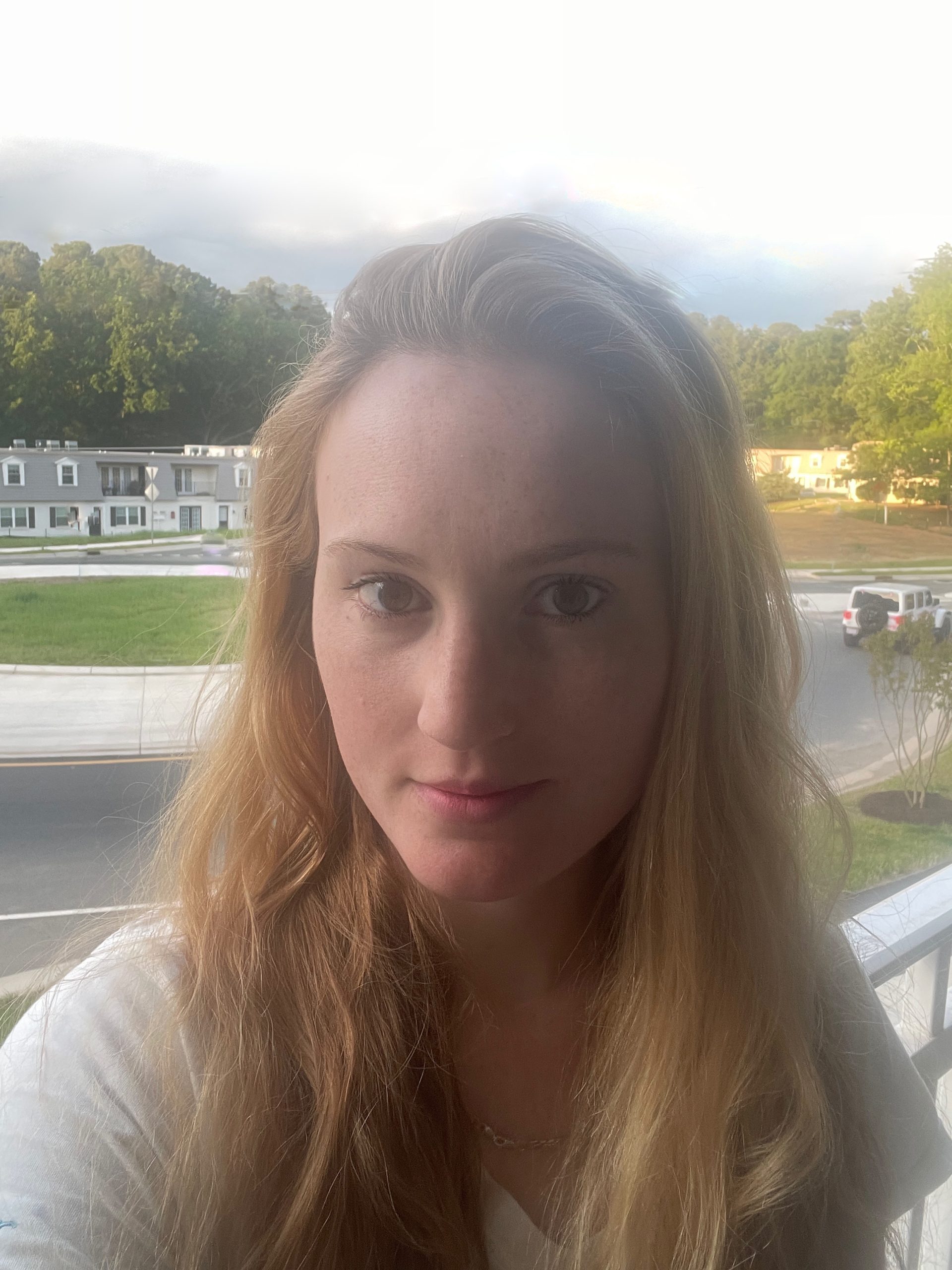 Degree program: MPH, global health concentration
Degree program: MPH, global health concentration
Helen earned an undergraduate degree in mechanical engineering and worked in the medical device and health research fields before coming to Gillings. She is a second year MPH student with a passion for working with organizations supporting conflict affected or displaced persons. She studied and researched through Global health programs at Boston University and American University of Beirut. She has previously worked with Engineering for Change on global focused projects. Helen supports the HHI through working with the NGO Syrian Society for Social Development (SSSD). The organizations focus is on improving health and social development throughout conflict-affected Syria. Helen is supporting data collection and analysis, organizational and community capacity building, and quality improvement efforts. Helen has been an HHI intern since 2023.
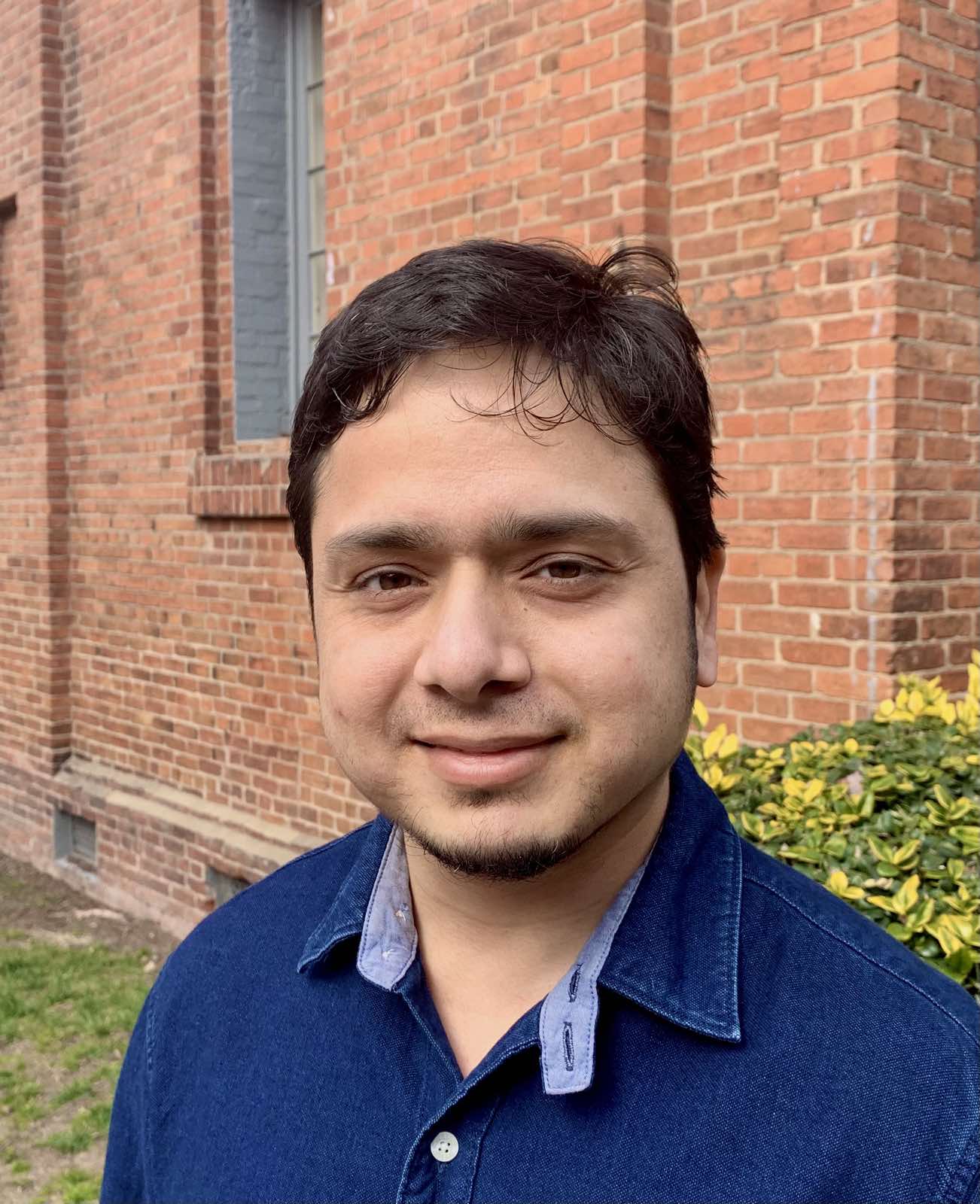 Degree Program: PhD (Health Policy and Management, Economics Minor)
Degree Program: PhD (Health Policy and Management, Economics Minor)
Prajwol Nepal is a PhD candidate in Health Policy and Management. His research focuses on using field experiments to evaluate interventions in important global health issues such as antimicrobial resistance and STI screening in key population groups. He has over a decade of professional experience in healthcare management, public financial management, consulting, and finance. Before pursuing studies at UNC, he received his MBA at National University of Singapore Business school. His doctoral dissertation focuses on antibiotics overuse among young children in Nepal and uses innovative approaches to identify and implement policy interventions to reduce rising antimicrobial resistance in Nepal. At HHI, Prajwol is supporting an evaluation project of an INGO in Sudan to understand the effectiveness of interventions and assist in strategic planning and program redesign.
 Degree program: MPH, global health concentration
Degree program: MPH, global health concentration
Kate is a second-year MPH student and a Registered Nurse with experience in pediatric care, virtual health services, and neonatal critical care nursing. During her first year of her MPH, she worked as a graduate research assistant, conducting qualitative interviews regarding infant and young child feeding in emergencies (IYCF-E). Kate supports the HHI by working with the NGO Rural Health Care Initiative (RHCI) to improve health systems and community health worker interventions in Sierra Leone. Her work supports quality improvement goals as the NGO increases access to needed medical service offerings and community health services.
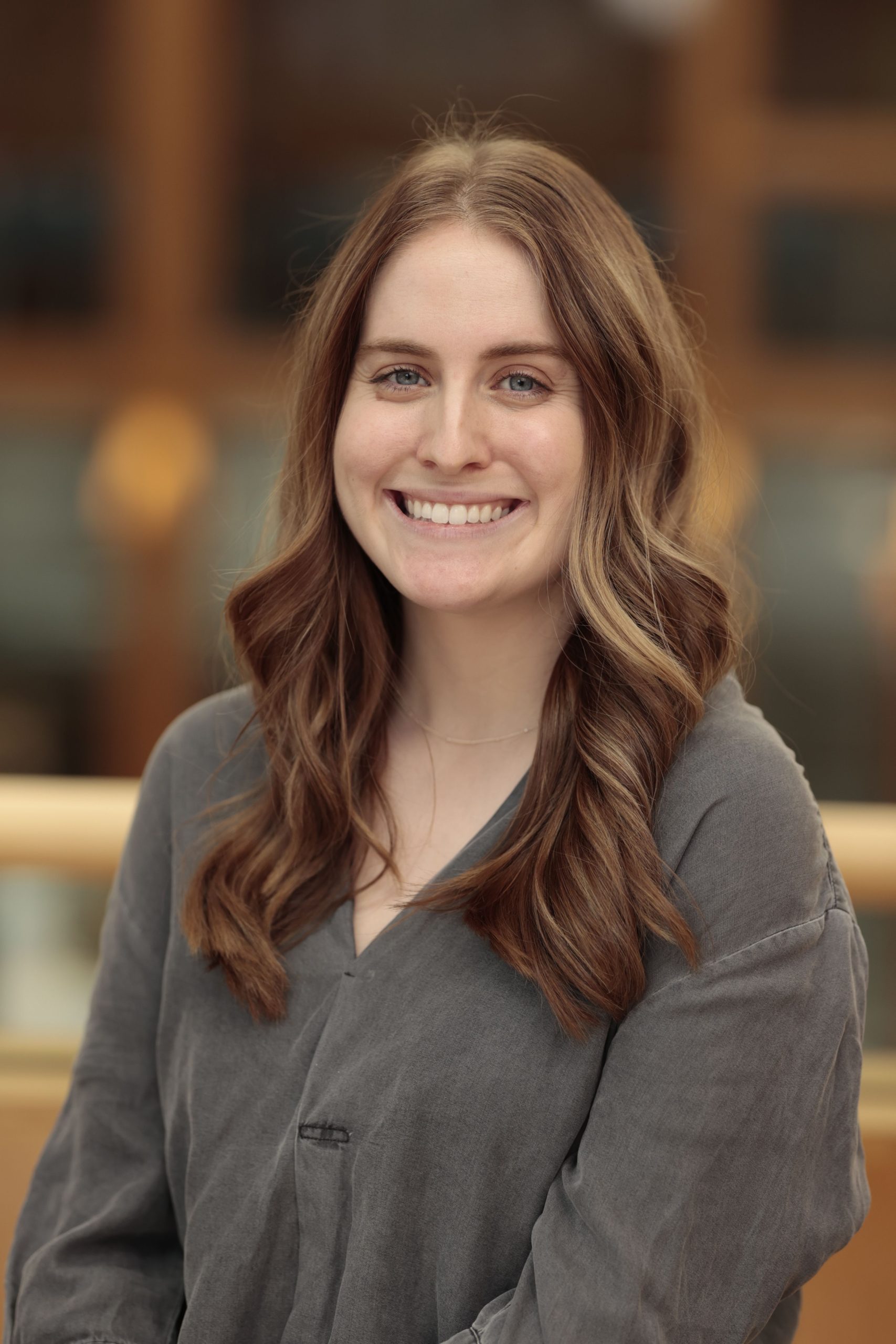 Degree program: MPH, maternal, child, and family health concentration
Degree program: MPH, maternal, child, and family health concentration
Sabrina is a second-year MPH student interested in analyzing and improving domestic and global health systems to improve birth outcomes for individuals during pregnancy, birth, and postnatal periods, reproductive justice, and food and nutrition security for infants and mothers. She received a BA in International Studies from Seattle University. and gained further interest in global health and development programs by working in the NGO sector providing technical assistance ranging from strengthening the physical rehabilitation sector in Haiti, Sierra Leone, & Senegal to developing innovative tools to address maternal and newborn health vulnerabilities in Sub-Saharan Africa & Southeast Asia. As an HHI intern, she assists with the Al-Azhar University, Gaza Project in capacity building and knowledge transfer between UNC Gillings and Al-Azhar University by continuing an open-university virtual lecture series on various health topics.
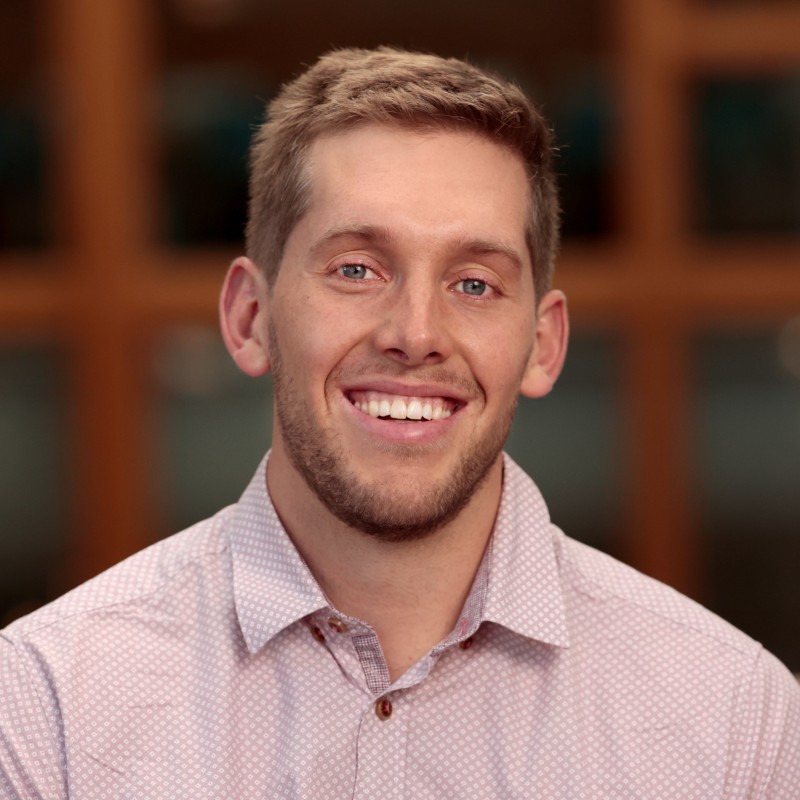 Degree program: MPH, global health concentration
Degree program: MPH, global health concentration
Quintin is a second-year MPH student in the Global Health concentration with an interest in migrant health and immigration policy. He received his bachelor’s degree in Biology from Lewis & Clark College, where he was a Student Leadership and Service Scholar. He has professional experience in non-profit work, migrant humanitarian work, implementation science, homeless outreach, and healthcare. Quintin completed his MPH practicum with Casa Alitas, a humanitarian aid organization dedicated to supporting and providing shelter to asylum seekers in Southern Arizona after they cross the nearby border. As a Gillings HHI intern, Quintin continues to work with Casa Alitas. His work supports their immigration policy research and the development of improved health services for their guests.
Founded in 2007, this community-based Nicaraguan NGO fosters community empowerment to treat illness, prevent disease and strengthen local health leadership through training and supporting community health workers. During the past 15 years over 670 CHWs and volunteers have provided primary and preventive healthcare activities in 25 rural and urban communities in Nicaragua. AMOS focuses on improving health for pregnant women, newborns, children under 5, and people with chronic conditions. The AMOS-UNC project is focused on monitoring and evaluation, specifically to examine the impact of programs to date and to help in the redesign to optimize benefit to communities.
The State of Palestine is affected by a protracted crisis; currently, 2.5 million people, including 1.2 million children, living in the Gaza Strip and the West Bank need humanitarian assistance. Gaza has suffered from isolation causing constraints to advance capability within higher education institutions. The Gaza-based University thus requested an academic partnership with UNC Gillings to facilitate knowledge transfer to build capacity among selected Gaza-based University faculty and staff, as well as the Ministry of Health. Several Gillings professors, including HHI advisors, have begun piloting an open-university virtual lecture series.
This long-established Syrian NGO responds to the many and diverse challenges faced by marginalized groups affected by the Syrian Crisis including difficult-to-reach areas, where there are internally displaced and war-afflicted persons as well as refugees returning to their communities after many years of living outside Syria. SSSD actively intervenes at an individual person, household and community level with specialized programs to alleviate the suffering, identify and provide for unmet basic living requirements, and address medical and development needs. Programs include health, WaSH, psychosocial support, shelter, social protection, infrastructure, vocational training and livelihood generation, as well as informal educational programs for children and adults. The UNC service project is supporting the development and operations of health care programs with design of health-related records and data sets to monitor, expand and improve patient care.
Sierra Leone has the highest maternal mortality rate in the world and an expected lifespan of just 52 years. Rural Health care Initiative is an NGO that partners with the Tikonko Chiefdom in Sierra Leone to advance existing maternal and child health services through community-based solutions including two Birth Homes for Mothers for safe deliveries and a Children’s Health Program. Through outreach motorcycle clinics in rural villages, family planning and antenatal care is provided as well as care for children under age 5. Most common conditions for treatment of children include acute illness, immunizations, arranging hospital care for critically ill children as well as a comprehensive program for moderate and severe malnutrition. The UNC service project includes developing the evidence base and understanding of best practices as well as qualitative assessment to improve access and effectiveness of health services.
Casa Alitas, also known as the Alitas Program of Catholic Community Services (CCS), is a humanitarian aid project committed to providing assistance to asylum-seekers released from ICE and Border Patrol detention into the local community of Tucson, AZ. As of August 2023, Casa Alitas had served over 350,000 asylum-seekers. Casa Alitas partners with UNHCR, Church World Service, Save the Children, the Kino Border Initiative and other local non-profit and community groups to serve migrants who have entered the USA after release from detention or border patrol and who are legally seeking asylum. HHI supports Casa Alitas by contributing to their immigration policy advocacy efforts, supporting the development of improved health services for guests, and creating service and research opportunities for medical and public health students.
MSF provides medical assistance to save lives and ease the suffering of people in crisis situations in settings affected by conflict, epidemics, disasters, or exclusion from healthcare services globally. The UNC service project is focused on supporting the organization to strengthen its clinical governance framework that provides the guidance, mechanisms and accountability for health care services provided in many countries. The technical assistance specifically includes building the evidence base and practical tools for improving safety, effectiveness, and the experience of care of persons receiving health services in humanitarian settings.
This project, initiated in 2015, supports the WHO National Quality Policy and Strategy Initiative---a global program (NQPS) for which Professor Sheila Leatherman serves as the Lead Advisor. The NQPS program has developed the conceptual frameworks, evidence –based interventions and supporting tools and resources to be used by low- and middle-income countries across the world. This program provides policy guidance as well as field based technical assistance. Further research and global consultation resulted in the publication of additional WHO guidance for quality in fragile, conflict-affected and vulnerable settings which was published in 2019 and is being implemented in numerous countries. UNC is also a primary partner for developing a global country-level comparative data dashboard for quality metrics across lower resourced and fragile countries. Multiple UNC-WHO collaborative peer-reviewed publications are available describing the context, methods, and findings of this portfolio of work.
Sudan, a country of 46 million people, has experienced conflict and multiple humanitarian crises for decades. Since April 2023, with the most recent internal conflict, about 8 million people have been displaced. According to UNHCR, the humanitarian situation is dire; inadequate food, water and fuel with limited communications and electricity. Save the Children reports up to nine million children are facing food shortages. Access to health care is critically affected: the WHO health cluster reports that 70% of health facilities in conflict zones are non-functioning. The global humanitarian response organization, Alight (previously American Refugee Committee) has worked in Sudan for several decades to scale health programming through multiple primary healthcare facilities, serving nearly one million people, including displaced populations. In 2022, Alight requested an academic partnership with UNC Gillings School of Global Public Health to help with ongoing monitoring and evaluation efforts to quantify the scale and efficacy of the services they have historically provided, to assess current programs and to recommend future strategies for improved service delivery in the context of acute and protracted crises. The UNC Humanitarian Health Initiative works with a multidisciplinary team in Sudan to conduct applied mixed-methods research and is developing a 5-year strategic plan.
Students were able to meet with Warner Passanisi, a local humanitarian who has decades of global experience. He most recently worked in Poland with Ukranian refugees. Students were able to hear from Warner, ask questions, and seek advice for humanitarian careers.
A showing of Bending the Arc and distribution of free copies of Mountains beyond Mountains by Tracy Kidder was conducted in conjunction with the Gillings Student Global Health Committee in memory of Dr. Paul Farmer.
The Gillings Humanitarian Health Initiative Seminar Series focused on the safety and security for health care workers and facilities in humanitarian settings. Panelists include Dr. Dilshad Jaff, Gillings Humanitarian Fellow and Adjunct Associate Professor and Dr. Benjamin Meier, Professor of Global Health Policy and UNC-Chapel Hill.
UNC Gillings alumna Anna Freeman, RN, MPH, nurse and quality improvement specialist, shared her humanitarian field experiences and work to improve quality of care with Médecins Sans Frontières / Doctors Without Borders.
Dr. Dilshad Jaff, the Gillings Humanitarian Health Fellow, presented on his field experience working with the International Committee of the Red Cross in South Sudan.
Assistant Professor in Pediatrics, Duke University
Volunteer HHI Program Coordinator
Humanitarian Health Specialist
Adjunct Professor, Health Behavior
Humanitarian Health/WaSH Specialist
Alumnae Technical Advisor
Assistant Professor of Medicine, Weill Cornell Medicine College
